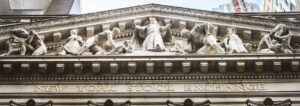Wisdom from legendary investors
The year 2012 was a good year for everybody and an exceptional one for Germany (up 31.4% in USD terms). The S&P 500 was up 13.4% but the SPTSX (Canada) only increased by 7%. As most of the media center their attention on Euro zone problems, currency crises, China’s economic slowdown, and the US deficit and debt ceiling, the market keeps on climbing these walls of worry.
We have read many books on business and investments over the years and we would like to share with you some of the quotes and interviews from legendary investors that we believe can serve as valuable lessons. Since human memories tend to be short and we are gullible for too-good-to-be-true ideas, it is imperative that we revisit these quotes so we don’t fall in the traps of greed and fear that have proven to be so costly.
TEMPLETON on When to Sell
“Several years ago, I came up with what I believe is the right answer on when to sell. The solution is never ask when to sell a stock. Instead, you should sell a stock when you have found a new stock that is 50% better bargain than the one you hold.
It is like comparison shopping. It is as much a search for relative bargains as it is a search for absolute bargains.”
TEMPLETON on Maximum Pessimism Investing
“People are always asking me where the outlook good is, but that is the wrong question. The right question is: where is the outlook the most miserable? In almost every activity of normal life, people try to go where the outlook is best. You look for a job in an industry with a good future, or build a factory where the prospects are best. But my contention is if you are selecting publicly traded investments, you have to do the opposite. You are trying to buy a share at the lowest possible price in relation to what that corporation is worth. There is only one reason a share goes to a bargain price: because other people are selling. There is no other reason.
To get a bargain price, you’ve got to look for where the public is most frightened and pessimistic.”
TEMPLETON on Market Cycles
“Bull markets are born on pessimism, grow on skepticism, mature on optimism and die on euphoria. The time of maximum pessimism is the best time to buy and the time of maximum optimism is the best time to sell.”
TEMPLETON on Being Different
“If you want to have a better performance than the crowd, you must do things differently from the crowd.”
TEMPLETON on Methods to Take Advantage of Crisis Events
- Always store some funds in reserves;
- Maintain a wish list of companies to own at a bargain price;
- An optimist, hold a fundamental belief in the continued innovation, ambitions and ingenuity of others.
CHARLIE MUNGER on Decline of Share Prices of BRK
“Not worried at all. This is the 3rd time that Warren and I had seen our holdings in BRK go down 50%… It is in the nature of long term shareholding to have the quoted value go down by say, 50%… If you are not willing to react with equanimity to a market decline of 50% 2 or 3 times in a century, you are not fit to be a common shareholder and you deserve to get the mediocre result you are going to get compared to other people who do have the temperament and who can be more philosophical about these market fluctuations.”
CHARLIE MUNGER on Financial Deregulation Leading to the Financial Crash
“We went way too far in financial regulation. People are making so much money…and the economy was doing so well because it was puffed up by this idiot boom, this idiot expansion of consumer credit but everybody thought this was wonderful…and of course it is like your life for the next 3 weeks would be more pleasant if you went on heroin but it would totally destroy you over the long-pull and that is what an economy does when it allows itself to be seduced by the potential for an idiot boom…”
CHARLIE MUNGER on Wall Street Culture
“Wall Street tracks and rewards what I call the “Locker room’s culture”. They have to win because they are so competitive… They do a lot of damage with their locker room culture because they have to win…and they are not very squeamish about what they have to do to win.”
CHARLIE MUNGER on China Communism
“That is not really communism as we traditionally think of communism. Communism that accepts… free market development is not classical communism…what they said is they throw out the basic heart of communism but keep one party rule…it is working pretty well, very well and I am not such a purist… to assume that the only correct way to do things for everybody else under all circumstances is our way that we do things…I am terribly impressed by the way the modern communist party in China is including all these engineers as they rise. That is a very desirable thing and I wish we had more engineers in Congress…”
CHARLIE on Government Intervention (Keynesian economics)
“It works in Japan and Germany… but if your whole cultural system disintegrates, like in Greece where everybody wants an easy living and no work, lot of make-believe and fraud and what have you, then the Keynesian stuff won’t work.
Intervention works best if we have a lot of basic merits… As your virtues deteriorate and people seek easy money from the government by using their voting privileges instead of working, then the Keynesian stuff would work less well… It is so hard and does not fit the techniques of economics to discuss the sin ratio…”
BUFFETT on Investing in Stocks
“I want a simple business, easy to understand, great economics now, honest and able management and then I can see about in a general way what it is going to be 10 years from now. If I can’t see what it is going to be 10 years from now, I don’t want to buy it. I don’t want to buy any stock where if they close the stock exchange tomorrow for 5 years, I won’t be happy owning it. I buy a farm and I don’t get a quote on it for 5 years and I am happy if the farm does OK. I buy an apartment house and I don’t get a quote on it and I am happy if the apartment house produces the return that I expect. But people buy a stock and they look at the price the next morning and they decide whether they are doing well or not doing well. It is crazy because they are buying a piece of a business…you will do well if the business is doing well and you did not pay a totally silly price…that is what it is all about, you ought to buy business you understand…It is not complicated.”
BUFFETT on Sticking to What you Know
“Knowing what you understand and what you don’t understand… It is what I call the circle of competence. Everybody has a different circle. The important thing is not how big the circle is. The important thing is to stay within the circle.”
BUFFETT on Independent Thinking and Long Term Horizon
“The best way to think about investments is to be in a room with no one else and just think. If that does not work, nothing else is going to work. The disadvantage of being in any kind of market type environment – – and Wall Street is the extreme –, is that you get over stimulated. You think you have to do something every day.
Don’t dance in and out every day… Wall Street makes its money on activity. You make your money on inactivity.
You don’t need a lot of brain in this business. I have always said that if your IQ is 160, give away 30 to somebody because you don’t need it in the investment business. What you do need is emotional stability. You have to be able to think independently and when you come to a conclusion, you have to really not care about what other people say and just follow the facts, follow the reasoning and that is tough for a lot of people.
You can figure out what will happen but you can’t figure out when it will happen. You don’t want to focus too much on when; you want to focus on what.”
BUFFETT on Paper Currencies
“Cash is always a bad investment…A year ago, when people said cash is king, it is crazy. Cash was not producing anything and was sure to go down in value over time but you have to be sure you have enough. It is like oxygen, you want to be sure it is around. But you don’t need an excessive amount. I’d much rather own a business than have cash…All assets are a hedge against the Dollar…all you know is that the Dollar is going to be worth less 10, 20, 30 years from now, and I said “worth less” and not “worthless”…and that is true for almost every currency that I can think of. The question is how much it depreciates in value.”
We hope that you enjoyed it.
The Claret Team







